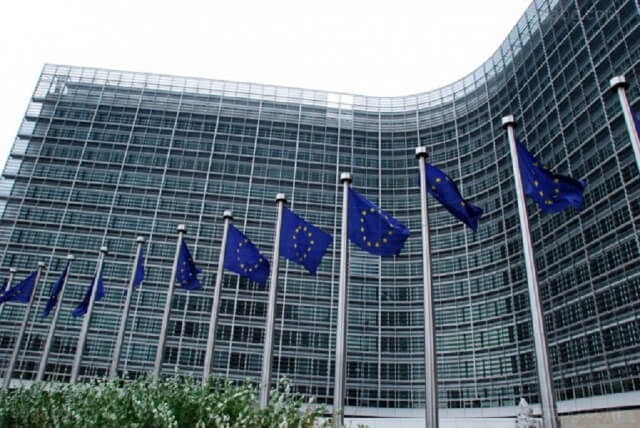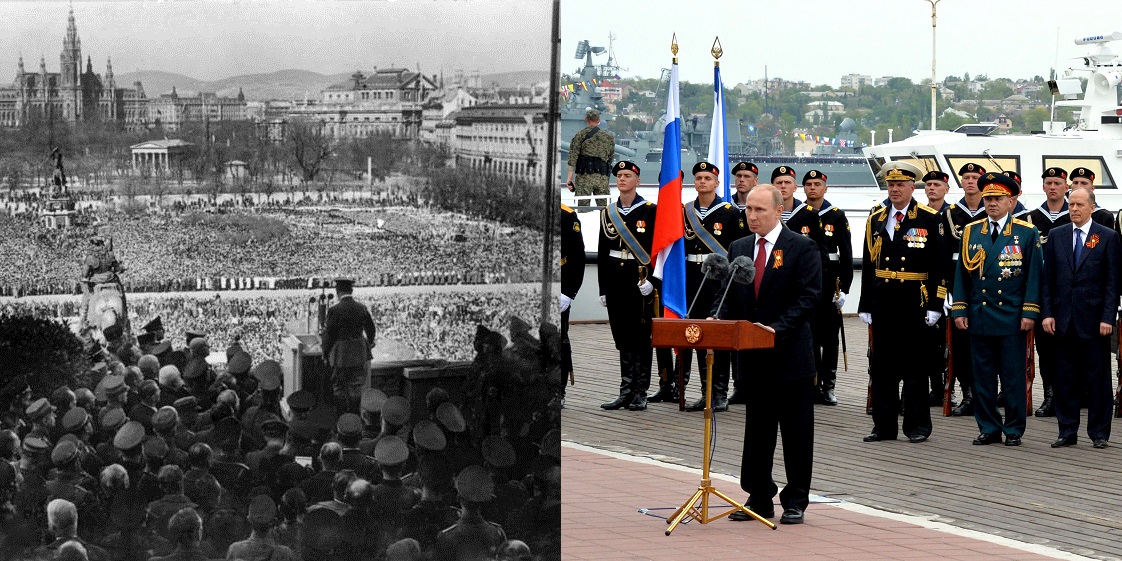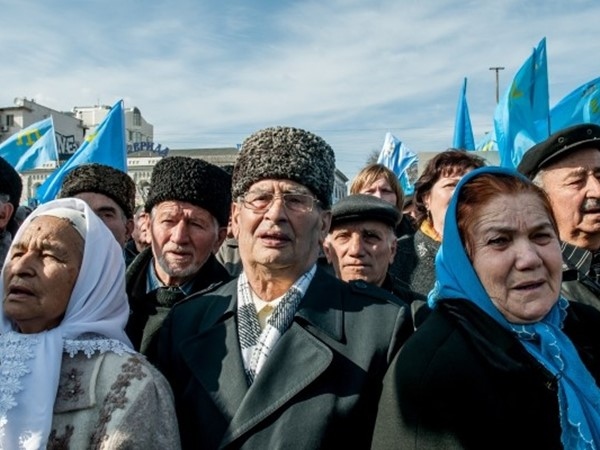Some call the EU sanctions regime a "paper tiger"; however, there are signs that this status quo will soon change, professor of international law Cedric Ryngaert tells.
“There exist several EU countries that are ready to investigate sanctions violations, but, unfortunately, no effective steps have been taken as a result. Many say that the European sanctions regime exists simply on paper, they are called a ‘paper tiger’," public international lawyer and professor of international law at the University of Utrecht Cedric Ryngaert said during a webinar on Crimean Sanctions on 13 September organized by the Media Initiative for Human Rights and Euromaidan Press.
“Therefore, the EU should take a more responsible approach to this issue. It is possible to monitor more closely how EU member states implement sanctions. But there is good news here, as the EU is currently reviewing sanctions enforcement mechanisms and sanctions mechanisms for violating these sanctions. So far, the most ‘nuclear option’ that has not yet been resorted to is to bring cases against non-sanctioned countries to court in Luxembourg."
 To understand the situation with EU sanctions and how they can be expected to change in the nearest time, we spoke in detail with Prof. Cedric Ryngaert.
To understand the situation with EU sanctions and how they can be expected to change in the nearest time, we spoke in detail with Prof. Cedric Ryngaert.
Generally speaking, is the EU sanctions architecture well planned?
Russia’s annexation of Crimea can be considered a violation of international law. In this case, the EU's position is that it can take “third party countermeasures.” The EU is the third party because it is not directly affected (Ukraine is), but the EU wants to safeguard the international legal order. In a way, they are policing the world. Ideally, this would happen through the UN Security Council. But Russia is a permanent member of that council and is not going to impose sanctions against itself.
This is why you need a decentralized architecture of international sanctions. It's the second-best option, but it's the only thing we have at the moment.
That is an important thing for the EU as a guardian of the international rule of law. This is the architecture as I see it.
Is the US sanctions architecture any different from the EU’s?
I think about the US sanctions against NordStream 2. It is not a violation of international law for Russia to build a pipeline to Germany. There was a lot of US opposition against this pipeline, but it seems that Germany and Russia have won that battle. But clearly, US sanctions against NordStreams 2 would be difficult to justify from an international law perspective. This is about power politics and international security, economic rationales as well.
So the US applies sanctions more often, also to serve its domestic interests, even if there's no underlying international law violation. That's the difference between EU and US sanctions.
Have the EU sanctions been effective?
The ultimate goal of the EU’s sanctions is to reverse Russian policy, and this goal is not within reach. This is also what the French and Italians have said. At one point we need to talk about an exit strategy.
This is a bit of a fait accompli,
the annexation of Crimea by the Russian Federation. Are you going to impose sanctions until the end of time? That's a difficult one. There is of course still hope, that the sanctions are a temporary measure taken until the target against whom it is directed stops its internationally wrongful act. This is the architecture of how sanctions work.
But this -- will it be a temporary situation? Obviously, you, coming from Ukraine, hope this will be temporary. But I have my doubts about this. It seems that Russia has really entrenched its power and control over Crimea. So you can wonder how effective these sanctions have been. Of course, maybe at some point the Russian regime will totally implode and there will be a new regime that is more Western-friendly, maybe that's also the aim in a way. But to me, it seems that the sanctions have not really weakened the Russian grip on control over the Crimean peninsula.
Scandal as Dutch companies help build bridge to occupied Crimea, violating sanctions
Academic literature on sanctions features the term avoision, a hybrid of “avoidance” and “evasion” – when firms twist the letter of the sanctions just enough to get away with violating them. Would you say that EU sanctions give space for avoision?
[boxright]The largest Dutch Crimean sanctions violation which made headlines in the country and around the world was the participation of Dutch technological firms in the construction of Kerch bridge connecting Crimea to Russia, which was opened in 2018. Thanks to a journalist investigation, the case reached the political limelight, with the prosecutor’s office launching a pretrial investigation into a possible breach of sanctions. It continues till today.[/boxright]There exists an anti-circumvention, or anti-evasion clause in the relevant regulation on sanctions, and it has played a role with regard to how business was conducted between a number of EU firms and Russian partners. During the building of the Kerch bridge to Crimea, some of these firms said "we're not actually violating the regulation [for example, because the equipment was used on geographically Russian territory- Ed.]," but then the Dutch Foreign Minister, some NGOs, and the press alleged, "you may be violating the spirit."
Indeed, it might be a violation of the anti-evasion clause. So there is definitely a problem there, but it can legally be taken care of. But you have to prove, as an enforcement agency, that there was a conscious move by the business to evade the sanctions regime.
And how would you prove that?
You have to prove that via internal emails etcetera, and this is why quite often there is no public enforcement strategy, no action is taken, because you don't have access to the evidence.
If we're looking from the design perspective, could this be a drawback of the existing sanctions regime?
That's a problem with all kinds of laws. There is such a thing as the rule of law in the EU because you can challenge a sanctions decision before the Court of Justice of the EU. You want to make sure the person really deserves to be on that list, that the person is actually connected to sanctions-busting. So you have to prove that the person is really involved. It is a drawback, but it's a drawback that I think we have to accept to a certain extent because the EU is a rule-of-law-based society.
How should this enforcement happen in theory under the current rules?
In theory, the member states are the arms and legs of the EU. Here we see another level of decentralized enforcement in the 27 member states. And of course, some member states will be more willing to go after a sanctions buster than another member state. That will also depend on political preferences. Imagine you have a regime in place that is pro-Moscow - and we have such regimes in the EU. You can expect there will be less enforcement. So something needs to be done about this.

The EU Commission is very much aware of the various levels of enforcement, and there has been a memo that has been disseminated in January this year. It wants to be more serious about enforcement and, possibly, bring infringement proceedings against member states that insufficiently enforce existing EU sanctions.
The dissemination of this memo is probably related to the adoption of the Global Human Rights Sanctions Regime in December 2020; then suddenly in January, we have this piece from the Commission.
An issue that played a role in the Global Human Rights Sanctions Regime was regarding travel bans -- that some countries don't apply the travel bans consistently, and that apparently played a role in the discussion leading up to the sanctions regime. Whether it should be laid down in a regulation or not is a technical issue; the important point was that during those negotiations, the negotiators were very well aware that there were different speeds, and if you adopt a new sanctions regime, you should make sure that it will be effective.
Can the existing sanctions framework be improved to facilitate enforcement?
There is a problem between central and decentralized enforcement. Most enforcement of EU sanctions is decentralized, and it happens at different speeds. Maybe national prosecutors are wrong when not pressing charges against local companies involved in building the bridge to Crimea, but there is no one to second-guess them. So you need stronger EU enforcement agencies to supervise what's happening at the level of the member states because member states are getting away with non-enforcement.
There are very few enforcement cases, not only in relation to Russia but just more broadly. There are so many sanctions regimes and many firms and member states. Many do their best, but others are laggards. Maybe a lack of knowledge of what is going with sanctions enforcement in various member states is present as well.
For example, I've been looking at the EU blocking regulation. That's an anti-sanctions regulation, against US sanctions, that should allow us in Europe to continue to trade with Iran, Cuba, China. It's part of the broader sanctions package of the EU.
There's a duty not to comply with the US sanctions, but what we see is that many firms in fact comply with US sanctions and actually violate EU law. But there is no single public enforcement procedure that has been brought against an EU company for violating the EU blocking regulation. That is a major concern and that's part of the EU’s looking at beefing up its sanctions potential. Perhaps we need a central authority to supervise sanctions and compliance, like OFAC in the US. However, there's a lot of opposition from the member states who don't want to centralize enforcement. It's one thing to have the law, and another to have adequate enforcement of the law.
The national agencies should send information to the central agency, so the central agency could perhaps follow in real-time what is happening. This is sharing databases, something that is not happening now. That's the first step. The ultimate one is: if you have a member state which does not share its data, is not listening at all, then you need actual enforcement.
The EU Commission is driving the changes in sanctions legislation. It's one of the Directorate Generals who is behind this. The thing is that the Commission doesn't have that many powers in foreign policy, so they try to frame this as an economic issue, where they do have these powers. So there is some constitutional concern whether the Commission has the power to do all this -- to monitor and enforce something that is so connected to the foreign policy of the member states which is legally speaking reserved for the member states and not the EU.
The EU can take some common positions and so on, but it doesn't have that much legal value. You cannot go to a court in relation to violations of European law that have been adopted as part of the common foreign and security policy. So it relates ultimately to foreign policy, which is for member states very much a sovereign priority.
Where do you see this process going? You're talking about opposition and tension, and it's always been there -- different member states have different ideas of how centralized the EU should be. Do you think that it's realistic to expect that the current sanctions regime will actually change given this tension?
It's a step-by-step process. But the Commission has said "We want to be a geopolitical commission" including having the power to take sanctions and act on the international plane. However, the Council consists of the 27 member states and as long as decision-making takes place on the basis of unanimity, Hungary can simply say "we don't go along with it," if you want to have a revision of the EU legal framework. All the member states will have to agree to change the legal framework to, for instance, qualified majority voting, which would be ideal so that you could just go ahead with the sanctions if you have this majority. But this is very difficult, precisely because it relates so much to the EU member states’ national ideas for foreign policy and security.
So some member states want to forge ahead, and the Netherlands is one of them. Our Prime Minister gave a relatively famous speech in Zurich two years ago where he was very much in favor of stronger EU sanctions.
And The Netherlands has taken a lead with new EU sanctions by authoring the EU Global Human Rights Act. How did this happen?
We have a number of very active parliamentarians with a background in international relations, who want to strengthen compliance with international law and human rights. These Dutch parliamentarians made common cause with parliamentarians elsewhere in the EU and they got the ball rolling.
How would you say the attitude to Crimean sanctions changed over seven years?
Countries such as France ask "what is the end game," so the attitude is "we cannot go on indefinitely, we need Russia as a partner in certain respects - energy security, fighting terrorism” and so on.
So I think attitudes are maybe changing, maybe there will be a working relationship again. I wouldn't say that the sanctions will entirely disappear, but they may be softened in due course. Just look at the political discourse.
But the thing is that it's one thing to impose sanctions, but if you want to lift sanctions, you'll also need the 27 member states. So France can say whatever it wants, but it will need to convince the others as well to lift those sanctions. And the Netherlands, which is one of the EU countries that is most critical of Russia, will also have to agree. There's also the whole MH17 story which plays a big role. So attitudes are not necessarily softening in the Netherlands. At the same time, the Netherlands is also dependent on Russian gas. So it's a very complicated puzzle.
You say the Netherlands is one of the more anti-Russian countries in the EU. How did this happen? I recall it was in the Netherlands that a referendum was conducted against the EU-Ukraine Association Agreement.
The referendum was run by the populists, it was not about Ukraine in the end, it was about The Hague deciding what was the best for ordinary Dutch people, a vote of no confidence against the EU. So it was not about Russia or Ukraine. What really changed the attitudes was MH17, and I would say cyber aggression, allegedly carried out by Russian operatives against certain targets in the EU, including the Netherlands. Ransomware and cybercriminals tolerated by the Putin regime were also issues at the Biden Putin summit. That plays a major role. The Netherlands is one of the most digitized societies in the EU, so we consider ourselves as uniquely vulnerable to Russian cyber aggression.
Thank you for this insightful interview, Prof. Ryngaert!
Related:
- Ukraine prepares sanctions against Austrian firm over flagship opera house in occupied Crimea
- It is high time for Ukraine to create a domestic sanctions policy
- How German companies violated sanctions to bring Dutch sea platform to luxury marina in Crimea
- Grundfos says it took all precautions to prevent Crimea sanctions breach, and this raises questions
- German Ambassador Anka Feldhusen: Crimean Platform good for getting more countries to support Ukraine & sanctions
- Siemens’ Crimea sanctions break – a case of criminal negligence | #SiemensGate
- How Siemens chose to ignore the obvious. An investigation into the Crimean sanctions break
- Scandal as Dutch companies help build bridge to occupied Crimea, violating sanctions





